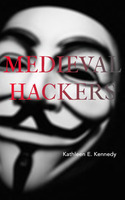Medieval Hackers
Author(s)
Kennedy, Kathleen E.
Collection
ScholarLedLanguage
EnglishAbstract
Medieval Hackers calls attention to the use of certain vocabulary terms in the Middle Ages and today: commonness, openness, and freedom. Today we associate this language with computer hackers, some of whom believe that information, from literature to the code that makes up computer programs, should be much more accessible to the general public than it is. In the medieval past these same terms were used by translators of censored texts, including the bible. Only at times in history when texts of enormous cultural importance were kept out of circulation, including our own time, does this vocabulary emerge. Using sources from Anonymous’s Fawkes mask to William Tyndale’s Bible prefaces, Medieval Hackers demonstrates why we should watch for this language when it turns up in our media today. This is important work in media archaeology, for as Kennedy writes in this book, the “effluorescence of intellectual piracy” in our current moment of political and technological revolutions “cannot help but draw us to look back and see that the enforcement of intellectual property in the face of traditional information culture has occurred before….We have seen that despite the radically different stakes involved, in the late Middle Ages, law texts traced the same trajectory as religious texts. In the end, perhaps religious texts serve as cultural bellwethers for the health of the information commons in all areas. As unlikely as it might seem, we might consider seriously the import of an animatronic [John] Wyclif, gesturing us to follow him on a (potentially doomed) quest to preserve the information commons.
Keywords
medieval history; information commons; hacktivism; media archeology; intellectual property; media studies; Renaissance historyDOI
10.21983/P3.0088.1.00ISBN
9780692352465OCN
1125459516Publisher
punctum booksPublisher website
https://punctumbooks.com/Publication date and place
Brooklyn, NY, 2015Classification
Media studies


 Download
Download